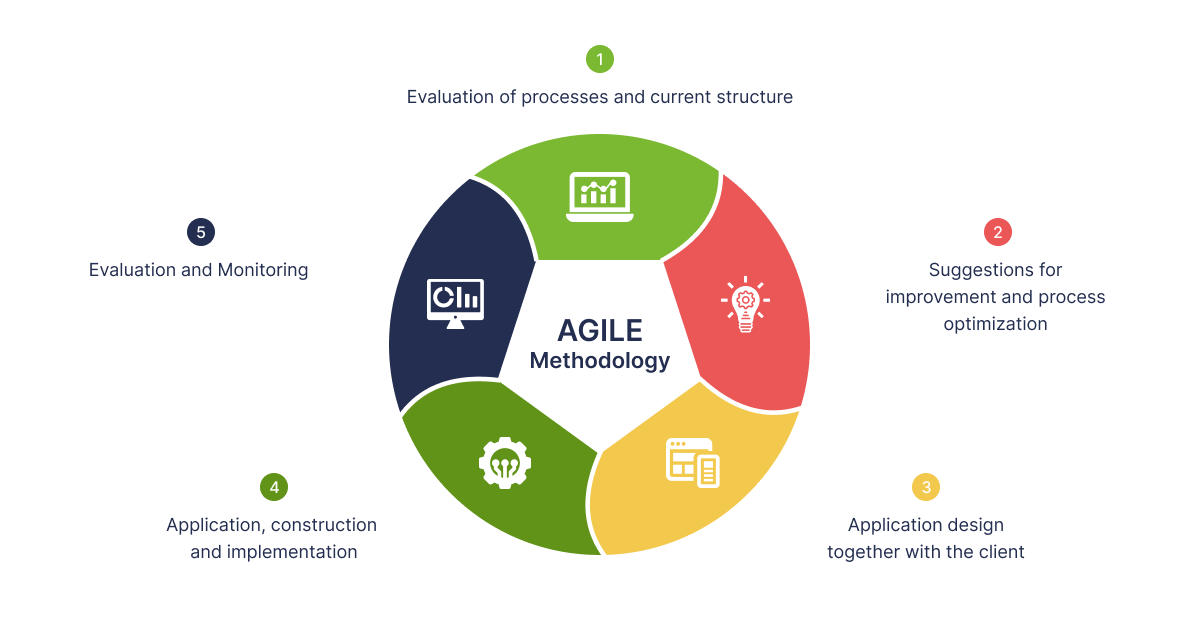Implementing Agile in Healthcare for Quality Assurance
More than any other critical area, health needs the introduction of innovative technologies to improve the functioning of the entire system. But the paradox is that it is in this industry that the practical implementation of innovations faces bureaucratic obstacles, which slow down the progress. In particular, the COVID-19 epidemic has become a new challenge: to reduce the scale of the problem, it was proposed to implement the Agile approach. According to the idea, the methodology aims at improving communication between doctor and patient, doctor and hospital, clinic and pharmacy.
What is Agility Healthcare?
The term Agile was first used in the IT industry and meant a team approach to project management. The goal of using Agile was to increase productivity by completing tasks in small chunks. For the control, the results are analyzed and priorities are set. Thus, the project is being implemented in short bursts and relying on feedback from end users. The central component of Agile is fast and active communication between team members, which allows you to quickly eliminate shortcomings and work according to the prevailing circumstances. Another indispensable component is short daily meetings (stand-ups), where performers briefly clarify their current workflow. Thus, the inertia of careful planning is leveled by adaptability to new changes.
The sphere of health protection today is suffering lack of flexibility in the processes of management, planning, and integration of new technologies. Because of this, changes are being introduced too slowly, the speed of adaptation to technological innovations leaves much to be desired, causing the possibility to see the results of transformations with delay.
Agile in healthcare is first and foremost about how to meet patient expectations by rapidly deploying applications, speeding up development processes, etc.

When to Use Agile in Healthcare?
In practice, it has been proven that there are more advantages of implementing the Agile methodology in the healthcare sector than in any other one. After all, in fact, the adaptability of the medical system is not as high as we would like. Thus, many employees with medical and non-medical specialties have to work with an ever-increasing flow of patients in conditions of constantly emerging new information on diseases, diagnoses, and treatment methods.
The advantage of Agile is that it does not dictate strict rules, but offers recommendations for optimizing work in accordance with changing conditions and tasks. To do this, the emphasis of the methodology is on the patient's feedback on what to do and how to act so that the quality of medical services provided could improve significantly.
How does the Agile approach work? According to the methodology, clinical specialists, engineers, and project managers take part in teamwork on a cyclic basis. After a short period of work, the results are analyzed, the improvements are achieved and weaknesses are identified. The experience of users, patients who used the services in the context of this methodology, also counts.
The Agile approach is applicable in the following areas of medicine:
- patient care;
- workflows in organizations and digitalization of healthcare;
- strategies in the organization of work;
- clinical operations;
- pharmacology;
- medical insurance.
Agile teams can adapt to new patient needs as they complete tasks, as they have the tools to learn and adapt to changing conditions and an expanding information base.
Read also: Healthcare Apps: Development Cost & Features
Benefits of Agile in Healthcare
Building the work of a healthcare organization in this way provides a number of advantages:
- The level of provision of medical services is increasing, as the focus is on the needs of the patient.
- Flexible communication and response. It saves time that was previously spent on organizing work and coordinating actions, and optional correspondence. Simplified mechanisms for interaction between departments.
- Effective self-organization of the team and understanding by the participants their tasks and authority, that positively affect the speed of decision-making and their correctness.
- The introduction of innovation is clearer and easier. For example, when launching a new drug, keeping track of test results is more than just sticking to a plan.
It should be understood that the introduction of the Agile method does not mean giving up communication with the customer or the initial planning. Adapting to changes and realities makes it easier to cope with the uncertainty of the budget and timing. The inherent time frame for Scrum is still present, and the priorities remain with MVPs and prototypes. At the same time, short- and long-term goals and performance indicators are acquiring greater significance.
| Benefits | Drawbacks |
| Improved collaboration and communication among team members | Initial resistance to change from traditional methods |
| Greater flexibility to adapt to changing needs and priorities of a patient | Need for skilled Agile coaches and training for team members |
| Enhanced focus on delivering value to patients and improving outcomes | Potential for increased complexity in project management |
| Reduced time to market for healthcare products and services | Might be difficult to implement in highly regulated environments |
| Increased transparency in project progress and potential issues | May require significant restructuring of existing workflows |
| Better alignment of team goals with overall organizational objectives | Might be challenging to integrate with existing IT systems and infrastructure |
| Increased satisfaction and engagement among team members | Requires ongoing commitment to continuous improvement and iteration |
Implementing Agile Principles
How to integrate the Agile methodology in a medical institution?
- Set goals during your introduction to the team, outline strategic goals and write down values and plans for growth.
- Select a work area where it is easiest and fastest to implement the methodology: changes will be launched there.
- Create a new model. To do this, it is important to understand what the key aspects of the work are and impose opportunities for transformation on them.
- Graduality and stages. In the beginning, it is important to introduce general functions, improve them with each cycle, conducting staff training.
- Customize the standard features for the specifics of your work.
The Software Development Hub creates products for automating healthcare processes. In our work, our team relies on flexible planning and development methods, which makes it possible to implement strategy and business tasks taking into account realities, and not just planning. SDH is a company that has extensive experience in custom medical software development and internet of things software development.
Categories
Share
Need a project estimate?
Drop us a line, and we provide you with a qualified consultation.









